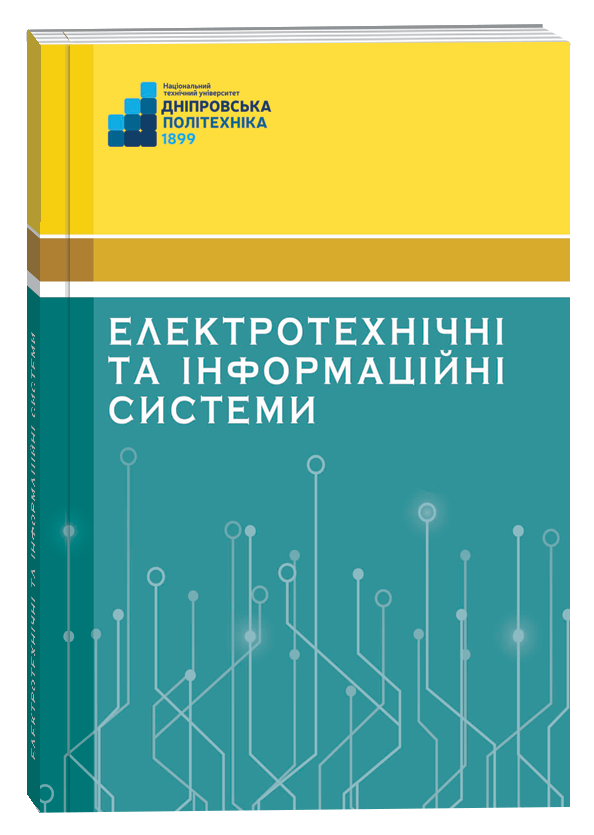CRITERIA FOR SELECTING RENEWABLE GENERATION SOURCES FOR MICROGRIDS
DOI:
https://doi.org/10.32782/EIS/2024-106-11Keywords:
terrain, load, type of RES, economic efficiency, control system, security (political situation)Abstract
Purpose. Research of existing modern scientific publications related to the criteria for selecting renewable generation sources for microgrids. Methods. The methodology of this review included a systematic analysis of the existing literature on renewable energy selection criteria for microgrids. A comprehensive search of academic databases, including IEEE Xplore, ScienceDirect, and Google Scholar, was conducted to identify relevant studies published between 2000 and 2023. The inclusion criteria focused on peer-reviewed articles, conference papers, and technical reports that addressed key factors influencing the selection of renewable generation sources for microgrids, such as economic viability, environmental impact, reliability, and grid integration. To ensure a balanced representation of different perspectives, the search included studies from different geographical regions and sectors, such as residential, commercial, and industrial microgrids. Publications were filtered based on relevance to specific microgrid applications. Results. The review revealed a significant research gap in the current literature on the selection of renewable energy sources for microgrids, especially in the context of Ukraine. While there is a large amount of research on general criteria for renewable energy selection and microgrid design, there is a noticeable lack of research that addresses the unique challenges and opportunities that arise in the Ukrainian region. These challenges are exacerbated by the ongoing war and the anticipated needs of post-war reconstruction, where energy infrastructure will play a critical role. Originality. The criteria for selecting renewable generation sources for microgrids were further developed by studying the latest research and publications on the topic. Practicality. The results demonstrate the need for a detailed study and formation of criteria for the selection of renewable generation sources for microgrids, taking into account regional characteristics and the security situation in Ukraine.
References
Kiehbadroudinezhad M.A., Merabet A., Abo-Khalil A.G., Salameh T., Ghenai, C. Intelligent and Optimized Microgrids for Future Supply Power from Renewable Energy Resources: A Review. Energies. 2022.
ЕКОПРО. Мікромережі та системи накопичення заощаджують витрати підприємств. URL: https://energystorage.com.ua/novosti/mikroseti-i-sistemy-nakopleniya-ekonomyat-zatraty-predpriyatij/
Medeiros, Izzy. A Literature Analysis of Microgrid Optimization Studies, 2023. Honors Theses and Capstones. 725.
Rodríguez-Lozano, Gloria Isabel and Michael Cifuentes-Yate. Efficiency assessment of electricity generation from renewable and non-renewable energy sources using Data Envelopment Analysis. International Journal of Energy Research. 2021. 45 : 19597–19610.
Tursi, Antonio. A review on biomass: importance, chemistry, classification, and conversion. Biofuel Research Journal. 2019.
Bajwa, Dilpreet S. et al. A review of densified solid biomass for energy production. Renewable and Sustainable Energy Reviews. 2018: n. pag.
Houghton R.A., Biomass, Editor(s): Sven Erik Jørgensen, Brian D. Fath. Encyclopedia of Ecology. Academic Press, 2008. P. 448–453. https://doi.org/10.1016/B978-008045405-4.00462-6
Zhou, Xiaoping et al. Deep Reinforcement Learning for Microgrid Operation Optimization: A Review. 2023. 8th Asia Conference on Power and Electrical Engineering (ACPEE) 2023: 2059–2065.
Guo, Yixin et al. Affine-Model Predictive Control based Optimal Dispatch of Multi-energy Microgrid. 2023 8th Asia Conference on Power and Electrical Engineering (ACPEE) 2023: 523–527.
Yu, Qin-ye et al. Deep Reinforcement Learning Based Double-layer Optimization Method for Energy Management of Microgrid. 2023 5th Asia Energy and Electrical Engineering Symposium (AEEES). 2023: 1016–1022.
Hende, Katelijn van and Carmen Wouters. The Regulation of Microgrids in Liberalized Electricity Markets in the EU and East Asia. 2014.
Europe Microgrid Market Forecast 2022–2030. Inkwood Research.URL: https://inkwoodresearch.com/reports/europe-microgrid-market/
National Geographic. “Continent.”. URL: https://education.nationalgeographic.org/resource/Continent/
Wood, Gavin A. et al. Australian Demographic Trends and Implications for Housing Assistance Programs. ERN: Urban Economics & Public Policy (Topic) 2017: n. pag.
Australian Government. 450 million to ramp up microgrids in regional Australia. Australian Renewable Energy Agency. URL: https://arena.gov.au/news/50-million-to-ramp-up-microgrids-in-regional-australia/
Nutkani, Inam Ullah et al. Enhanced Supply Reliability with Community Microgrids in Australia – Economic Perpective. 2023 IEEE International Conference on Energy Technologies for Future Grids (ETFG) 2023: 1–6.
Triton Market Research. Latin America Microgrid Market 2022-2028. Market Research.com. URL: https://www.marketresearch.com/Triton-Market-Research-v4232/Latin-America-Microgrid-32339072/
Triton Marker Research. Middle East and Africa Microgrid Market 2022–2028. Research and Markets. URL: https://www.researchandmarkets.com/reports/5663737/middle-east-and-africa-microgridmarket-2022-2028.
Gupta A. North America Microgrid Market – By Connectivity (Grid Connected, Off Grid), By Grid (AC Microgrid, DC Microgrid, Hybrid), By Power Source (Diesel Generators, Natural Gas, Solar PV, CHP), By Storage Device, Application & Forecast, 2022–2030. Global Market Insights.
Sanchez L. Texas Energy Crisis Strengthens Case for Microgrids. Homer Microgrid News. URL: https://microgridnews.com/texas-energy-crisis-strengthens-case-for-microgrids/
Hosseinpour, Hadi et al. Large-signal Stability Analysis of Inverter-based Microgrids via Sum of Squares Technique. 2023. IEEE Texas Power and Energy Conference (TPEC) 2023: 1–6.
Grid Systems. Office of Electricity. https://www.energy.gov/oe/grid-systems
Zhang L., Wang F., Xu Y., Yeh C.-H. and Zhou P. Evaluating and Selecting Renewable Energy Sources for a Microgrid: A Bi-Capacity-Based Multi-Criteria Decision Making Approach, in IEEE Transactions on Smart Grid, vol. 12, no. 2, pp. 921–931, March 202. doi: 10.1109/TSG.2020.3024553.
Vinothine S, Widanagama Arachchige L.N, Rajapakse A.D, Kaluthanthrige R. Microgrid Energy Management and Methods for Managing Forecast Uncertainties. Energies. 2022; 15(22):8525. https://doi.org/10.3390/en15228525
Adam Hirsch, Yael Parag, Josep Guerrero. Microgrids: A review of technologies, key drivers, and outstanding issues, Renewable and Sustainable Energy Reviews, № 90, 2018, Pages 402–411, ISSN 1364-0321, https://doi.org/10.1016/j.rser.2018.03.040.
Zhang, Ling et al. Evaluating and Selecting Renewable Energy Sources for a Microgrid: A Bi-Capacity-Based Multi-Criteria Decision Making Approach. IEEE Transactions on Smart Grid 12 (2021): 921–931.
Jaesung Jung and Villaran Michael. Optimal planning and design of hybrid renewable energy systems for microgrids. Renewable & Sustainable Energy Reviews. 75 (2017): 180–191.





